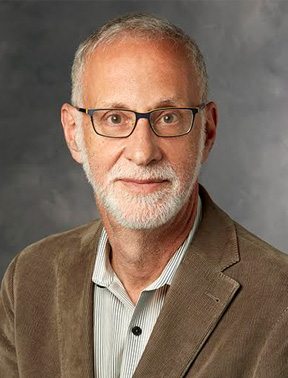
Mark Cullen
Internal Medicine and Clinical Epidemiology, Stanford University
Mark Cullen A graduate of Harvard College and the Yale School of Medicine, Cullen joined the Yale faculty in 1981 after training in Internal Medicine and Clinical Epidemiology. He devoted the first two decades of his career to the study of major occupational hazards in a series of clinical-epidemiologic projects based on data collected at the Yale Clinical Research Center (now CTSA). At the same time, he established and built an Occupational and Environmental Medicine Program exploiting the clinical, biologic, and analytic resources of that unique medical school environment, serving on the OH study section and numerous public and private occupational health advisory positions including NIOSH Board of Scientific Counselors, the MacArthur Research Network on Socioeconomic Status and Health, and the Institute of Medicine Health Science Policy Board. In 1997 he was election to the IOM (now National Academy of Medicine).
Since 1997, Cullen’s research morphed towards larger-dataset social and environmental epidemiology. The single largest effort involved an ongoing, trans-disciplinary study of disease, disability, and death of a large international cohort of aluminum workers, with a goal of explaining large differences in health across the workforce. The “Alcoa Study” has resulted to date in over 70 papers and trained over 40 doctoral and post-doctoral students in medicine, epidemiology, biostatistics, and economics, and served as a model dataset for integration of multiple large administrative data sources including numerous federal statistical sets.
In 2009, Dr. Cullen was recruited to Stanford as Chief of General Medical Disciplines and became increasingly interested in the potential for large observational data, merging EMR, biology, and physiology with available social and environmental data, to identify new pathways for discovery and translation, both at the bedside and through public policy. In April 2015, this effort was rewarded when he was named inaugural Director of the Stanford Center for Population Health Sciences, devoted to discovery of the pathways across the life-course by which social and physical environment and behavior lead to beneficial or harmful expression of genetic endowment. A singular focus of the Center’s work remains explanation of widening health disparities between rich and poor, whites and non-whites, and between women and men. It was this work which led to his organizing the faculty around SPHERE, Stanford’s Center for the study of how genetic and other “omics” may be used to address health disparities.
In 2016 Cullen was invited by Stanford leadership to assume the role of Senior Associate Dean for Research, and became co-PI on Stanford’s CTSA. This perch has provided him the context to bring to the fore a new ethos of translation to the research community, and the critical niche that observational data will play in the collective effort to achieve real progress in translational medicine. Despite his administrative roles, he remains active in the Alcoa Study and numerous collaborations, including those in the disparities Center.
